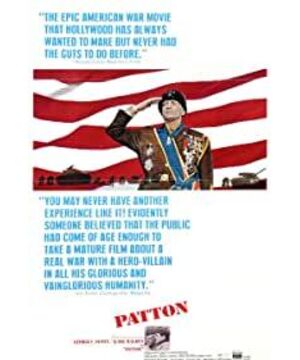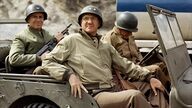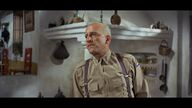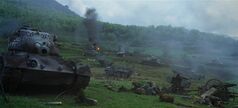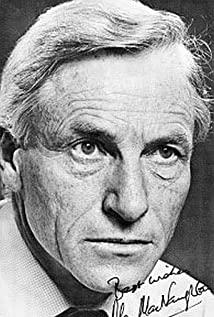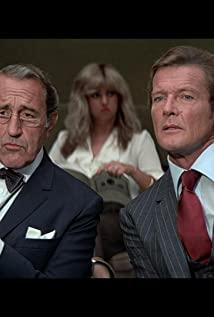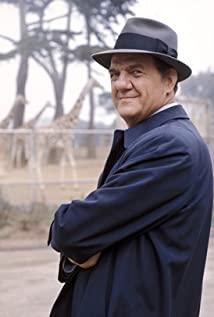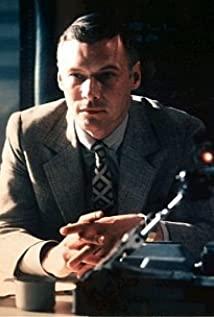General Patton is a controversial figure in the American military. He is enterprising, patriotic, and brave. He has made outstanding achievements during the Second World War and is called a generation of military gods. However, Patton’s character has fatal flaws. Behind his strong patriotism, he hides narrow nationalism. He has a strong aversion to the Soviet Union, which is also a member of the Allied Forces of World War II, and has repeatedly said and made statements. Things that humiliated the US government. From this point of view, there are traces of why Hollywood filmed "General Patton" and how it will film "General Patton".
In 1970, the United States was fighting the Vietnam War in Asia in full swing, and domestic anti-war voices were wave after wave. Against this background, General Patton, who was brave and patriotic and had a strong hatred of communism, was chosen as the subject of the film. , Naturally can strengthen the momentum of the US military. For the same reason, the film "General Patton" must be made into a biopic and not a war film, because war films will have a lot of casualties and sacrifices, which is obviously not conducive to the position of the US military.
However, whether you watch "General Patton" from the perspective of a war movie or a biopic, this movie is not detailed and in-depth enough. The battle process and character aspects intercepted in it are incomplete and partial. But "General Patton" is indeed a very classic American military propaganda film. It strictly follows the guidelines of "two nos and four nos", that is, no lies can be said, but no bad things can be said; no tragic sacrifices, no tactical errors , There is no intrigue, and no suspicious incidents. Some are just inspiring bravery, strong and fearless of sacrifice.
■ Patton
Patton is destined to become a famous general. From an early age, he aspired to become a soldier. Patton's family can be regarded as a military family, well-established and both parents fully support this son's development in the military. Patton possesses many qualities that a first-class general should have. He is brave, love, and firm. He is not only passionate about military affairs, but also very talented. Throughout his military career, Patton has been strict in military discipline and meticulous. What he wants to do here is to ride the battlefield and make contributions, and the Shroud of Horse Leather does not hesitate.
Button is a natural talent. He not only has strict requirements on his subordinates, but he also takes the lead and takes the lead, and he has an excellent instinct to judge the changes in the battle situation and the tactical layout. However, Barton, like many famous generals in ancient times, lacks political insight, is reckless, impulsive, and straightforward in speech. It is difficult to be controlled and controlled. Once he leaves the battlefield, he starts to add chaos, frequently saying wrong things, doing wrong things, and affecting internally. The stability and harmony. Due to strict military discipline and not afraid of sacrifice, Patton's troops move quickly on the battlefield and have a strong offensive power. They are soldiers the military must rely on. However, because they are difficult to control, they cannot be granted great powers and let them play.
Patton's personality is contradictory and diverse. He is a devout Catholic, but he believes in the reincarnation of souls. He believes that he is the reincarnation of a famous historical general. He participated in famous battles at various points in history and left his name. He is familiar with various military history books, but he insists on reading the Bible before going to bed every day. He pays attention to military discipline, but can't bear to punish subordinates who make mistakes at critical moments. He is determined, but he often sheds sentimental tears in the face of the passing of his life, and he wrote a short poem about it.
■For the Western Front of World War II
to view a historical film in a balanced manner, it requires some understanding of history itself. In 1941, Germany declared war on the Soviet Union, and Stalin, caught in the flames of war, frequently asked Britain to open a second battlefield in Europe to ease the tensions in the Soviet Union. However, on the one hand, Britain felt that it did not have enough troops to carry out landing operations. On the other hand, it was afraid that the Soviet Union would not be able to withstand Germany and refused to send troops hastily. Under international pressure, the British and American forces did not decide to make an informal landing from the north until November 1942, with General Eisenhower of the United States serving as the Allied Commander-in-Chief. It was at this occasion that General Patton, who was in charge of leading the American task force, stepped onto the stage of World War II for the first time.
On the Western Front of World War II, several famous Allied generals played the most important roles. One was the Allied Commander-in-Chief Eisenhower, the other was General Montgomery of the United Kingdom, the other was General Bradley of the United States, and One is General Patton. Among them, Eisenhower's main work, in addition to determining the specific strategic plan, also includes coordinating the cooperation between the British and American armed forces. General Bradley was Eisenhower’s confidant, and was responsible for Eisenhower’s frontline "eyes and ears". Later, when Patton entered North Africa, he became Patton’s deputy commander, but he had already shaken him when he landed in Normandy in 1944. Become Barton's immediate boss.
The main processes of the Allied forces during World War II were: landing from North Africa, launching the North African campaign (1942), eliminating German forces in North Africa, landing on Sicily (1943), attacking southern Italy, and carrying out the Normandy landing (1944). The French Western Front launched a full-scale attack on Germany. Throughout this process, the British General Montgomery showed a strong momentum of grabbing power, including the Battle of Sicily and the attack on Germany. He ignored the actual situation several times, regardless of the better attack position occupied by the US military, and on the European battlefield. They invested several times the strength of the British army, and they all insisted on the British main attack and main combat exploits.
At the beginning, Patton was the most important general of the U.S. Army with the help of the Battle of North Africa. However, during the Battle of Sicily, he made his own proposition to change the offensive route. In the end, although he won victory and won the first merit for the U.S. Army, he was offended by it. General Montgomery of England. After winning the Battle of Sicily, he even publicly slapped and insulted soldiers suffering from battlefield phobias. He was exposed by the American media and aroused public resentment. As a result, he was hidden in the snow and stayed on the island of Sicily. However, it is said that there is another reason why Eisenhower left Patton in Sicily, that is, to use his reputation and unclear dynamics to divert the attention of the German army and to contain a part of the German army.
In the second half of 1943, the world war situation began to change. Germany and Japan began to lose sight. Roosevelt and Churchill finally decided to cooperate with Stalin's request to formally open a second battlefield in Europe. Eisenhower continued to serve as the commander-in-chief. Subsequently, Eisenhower selected General Bradley as the commander of the US Army Group, and General Patton served as the commander of the Third Army, following Bradley's command. Although Patton felt aggrieved by such an arrangement, in order to be able to go on the battlefield, he could only obey. As a result, the super general Patton and the Third Army launched an invincible lightning offensive in Europe until they crossed the Rhine and hit Germany.
Although on the battlefield of Western Europe, Patton led the Third Army to demonstrate rapid offensive power, as well as excellent situation prediction and strategy formulation capabilities, but the US military has never allowed him to play freely, and has repeatedly confronted him in strategy and supply. He put pressure on him, and as a result, it came out that Patton was the master, was suppressed, and the credit was robbed. Compared with Patton’s outstanding performance, General Bradley once misjudged the situation and caused the Allied forces to be strongly counterattacked by the Germans. He was also overly conservative and forced Patton to slow down the attack. As a result, the Germans not only got a breather and a breakthrough. The opportunity to cause unnecessary casualties for the U.S. military has also delayed the victory of the war. And General Eisenhower has repeatedly taken care of the selfish intentions of British General Montgomery and ignored the opposition of the US military, causing strategic swings, missed the opportunity to attack and caused unnecessary casualties.
After Germany's surrender, Patton was sent to Slovakia and appointed as Bavarian military chief, but during this period, he may be spoiled by his pet, and he continued to make speeches that were friendly to the Nazis, hateful to the Soviet Union, and even privately released. Take the Nazi prisoners. Eventually, he was transferred and left the center of power. In December 1945, Patton died in a suspicious car accident. As for General Eisenhower, General Bradley, and General Montgomery all the way to the ranks, Eisenhower eventually became the President of the United States.
■Two nos and four nos.
During the war, to boost the morale of the army and the people, nothing is more effective than a positive real case. However, to be fair, "General Patton" is not a good movie.
First of all, General Patton himself is a controversial figure. Secondly, the films involved are all real people in history. In addition, there are a large number of research works on World War II. The content must be verified and there must be no false or obvious errors, otherwise it will cause a series of disputes and even litigation. Furthermore, as a military propaganda film during the war, in the face of the high anti-war sentiment in the country, there should be no tragic battle scenes in the film. Whether it is our army or the enemy's corpses, it will only remind the public. The cruelty of the war has contributed to the anti-war sentiment. Finally, the film must not contain any content that will damage the image of the U.S. military and make the public have a negative perception of the U.S. military. Therefore, the tactical errors, intrigue, and suspiciousness mentioned above must not appear, at least not in the U.S. military. One side.
It is necessary to carry forward General Patton’s personal patriotism and fearlessness, and to demonstrate the strength of the U.S. military through General Patton’s bravery and invincible warfare. The guidelines of tactical errors, no intrigue, and no suspicious incidents are indeed very difficult. After all, when highlighting General Patton's military exploits, he had to show his outstanding performance in various battles. However, when showing Patton's outstanding performance in various battles, he should not be too serious about presenting the fierce battle on the battlefield. At the same time, he must reasonably explain why his offensive has been repeatedly blocked by the upper level, and he has not been able to get what he deserves afterwards. honor. When using Patton’s personal flaws to explain the military’s restrictions on him, the flaws must be serious enough, but not too serious, otherwise it will affect the audience’s "patriotic sentiment and fearless spirit" towards Patton. Acknowledgment even affects the audience's overall perception of the U.S. military.
On the basis of subtraction and removing the things that cannot be discussed, the filming strategy of "General Patton" can only be a biopic rather than a war film. Not only that, but also the focus of the story must be concentrated on Patton's personal In his character, Patton's patriotic sentiment and fearlessness, as well as his shortcomings of reckless behavior and straightforward speech, are fully displayed through the decision-making and specific actions of Patton on certain occasions and certain battles. In this way, there is no need to make a comprehensive and complete narrative of the large and small battles of the US military on the battlefields of Western Europe, and those strategic interventions and mistakes can be ignored. Moreover, by sticking the camera tightly to Patton, he showed in detail his various actions that emphasized military discipline, boosted morale, and personally spurred and directed him, so that he could bring out Patton without much interpretation of specific battle scenes. The bravery and good fighting, and the courage and strength of his soldiers. In other words, what the film wants to emphasize is that Patton's success or failure on the Western Front is all because of himself and has nothing to do with other people.
So in the movie "General Patton", you can see that Patton, as a soldier, has a strong sense of honor. As a general, he leads by example everywhere, and he does not hesitate to sacrifice in order to achieve victory. The scene at the beginning of the film is the essence of the whole film: Patton stood alone in front of a huge American flag and gave a five-minute speech loudly and loudly, spreading out the fearless soldiers in slightly vulgar language. Spirit. But Patton’s own personality defects were simply condensed into that he had long recognized the nature of the Bolshevik party, but his lack of political sensitivity and the recklessness of his speech caused difficulties for the US government and the military. The lonely ending of a generation of famous generals. As for his nights and nights during his stay in Sicily, whether he allowed the reignition and growth of pro-Nazi forces, or the act of illiciting Nazis during his tenure as the military chief of Bavaria, they were completely omitted.
As for other characters, the performance and weight of other characters are simplified to the greatest extent in the film. Among them, General Montgomery is responsible for all the responsibilities of selfishness and ignorance. Outrageous. General Eisenhower’s image is that he knows his responsibilities and bears humiliation. For Patton, a subordinate who has repeatedly caused trouble, he can tolerate him and make good use of him, and even more unselfishly coordinate the opinions of the United Kingdom and the United States in the overall interests of the allies. As a priority. The image of General Bradley is calm and introverted, low-key self-denial, everything is focused on the overall situation, the above-mentioned instructions, not greedy for fame, not selfishness, and the impulsive character of Patton is repeated and repeated. Tolerance and containment.
A historical military movie supported by the U.S. military is destined to be full of viewership. After all, the military provides the support of venues, equipment, personnel, and technology, which has inherent advantages in terms of lifelikeness and atmosphere. In general, "General Patton" did not tamper with history, it just created the effect of a military propaganda film by avoiding the most important, simplifying the character of each character into a thin piece of paper. In this regard, the screenwriter of "General Patton" Francis Coppola once said: "If you make a film that praises him, it is a joke, but if you make a film that condemns him, then no one can make it." The actor George Scott of "General Patton" refused to accept the award after winning the Oscar for Best Actor, because he felt that he did not fully realize the complexity of this character and did not fully grasp the character of the character Patton. . Really, it's not tampering, just evasive.
View more about Patton reviews


